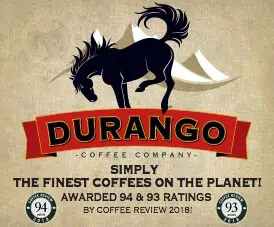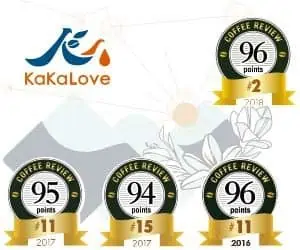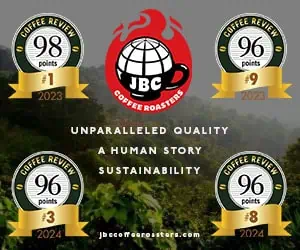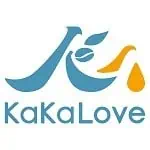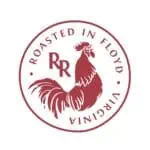Ethiopia Coffee
Courtesy of Kenneth Davids, 21st Century Coffee: A Guide
For many, the word Ethiopia provokes visions of deserts, droughts and famines. Yet the lush, green hills of southern and southwestern Ethiopiaare more likely to strike visitors who actually go there as paradisal. And, although Ethiopia remains among the world’s poorest countries per capita, for the coffee aficionado it is perhaps the richest place on earth, the source of some of the world’s most varied and distinctive coffees. Ethiopia typically generates about 4% of the world’s coffee, but all is Arabica and much of it is impressive to extraordinary.
Click here to view Ethiopia coffee ratings and reviews
Southern and Western Ethiopia
The producing regions of southern and southwestern Ethiopia in particular stand apart from the world’s other fine coffee origins. Witness:
- The forests of southwestern Ethiopia are the original botanical home of Coffea arabica, and they continue to harbor most of the unexplored genetic diversity still existing in the species.
- Much Ethiopia coffee is produced from indigenous Ethiopian varieties of Arabica; these native landrace varieties display symphonic complexities in aroma and flavor that, at their most distinctive, can make even other distinctive varieties of the world — like SL28 and Bourbon — seem a bit limited in sensory range. The only currently cultivated competitor to the finest native Ethiopian varieties in respect to cup and complexity is Geisha or Gesha, which is an Ethiopia variety (a particularly brilliant one) brought to the New World.
- Export-quality Ethiopia coffees from the south and west are almost always free of significant processing or drying taints. Fruit removal for the wet-processed coffees of these regions is performed using classic ferment-and-wash techniques carried out at well-managed, centralized wet mills or washing stations. Dry or natural-process coffees intended for the specialty market are most likely prepared with analogous care.
- Almost all Ethiopia coffee is grown by small-holding farmers, most of whom very likely have never used chemical inputs. Not only is this reassuring to consumers, but it also makes a transition to formal organic certification relatively easy, accounting for the widespread availability of superb organic-certified Ethiopias.
- Ethiopians deeply care about coffee and understand it. Its lore is woven into their culture. They do not produce great coffee and then go home to drink tea, as Kenyans do, or instant coffee, as sadly occurs in many of the coffee world’s other coffee-growing regions. The Ethiopians themselves consume close to half of their country’s production, most of it roasted fresh.
- Unfortunately for the many cash-poor villages of small-holding Ethiopia farmers, but fortunately for coffee lovers elsewhere in the world, most fine Ethiopia coffees are amazing bargains. A really distinguished coffee from the Yirgacheffe region is luminous, extraordinary, as great and distinctive as any in the world, yet it is likely to sell for routine, everyday specialty coffee prices.
The Harrar Exception
Note that these glowing affirmations apply mainly to the coffees of southern and western Ethiopia (traded through the capital Addis Ababa, including the most famous market names Yirgacheffe and Sidama/Sidamo) and not necessarily to the coffees of eastern Ethiopia, which are traded through the city of DireDawa and are sold under the market name Harrar (also Harar, Harer or Harari). Harrars more resemble the coffees of Yemen than the coffees of southern and western Ethiopia; they are produced from indigenous tree varieties naturalized to the rather arid growing conditions of the Harrar region and are almost always processed by the dried-in-the-fruit or natural method.
Unlike the relatively dynamic coffee industries of south and west Ethiopia, Harrar has languished over the past two decades with little innovation or improvement in quality. Many Harrar coffee farmers now prefer to grow khat, a tree whose fresh leaves are chewed as a stimulant, and which offers them year-round income rather than seasonal income, as does coffee.
At this writing, one only occasionally sees Harrar coffees in the North American specialty market, although they may be a bit more common in northern Europe. Hopefully Harrar will find the leadership and partners it needs to bring it back into specialty coffee as the great and honored origin it was 40 years ago.
Ethiopia Growing Regions
The coffee-name geography of Ethiopia is changing. Overlaid on the traditional regional names— particularly Yirgacheffe and Sidama (or Sidamo), both celebrated names in recent coffee history — are more lately established names for regions, zones and districts aimed at reflecting and honoring various Ethiopian traditional or tribal identities. These newer names form the backbone in the complex ECX grading system. On bags and websites, you may find the old, generalized regional naming or the newer, more ethnically correct terminology, or both. Or the main descriptor simply may consist of the name of one of the many well-known cooperatives or wet mills.
Ethiopia Coffee Ratings and Reviews
The Ethiopia coffees reviewed below are listed in reverse chronological order by review date. Only reviews published in the past five years are displayed. Click here to view older reviews of coffees from Ethiopia. Older reviews may no longer accurately reflect current versions of the same coffee.
High-toned, sweetly tart. Maple syrup, almond butter, dried apricot, cocoa nib, baking spices in aroma and cup. Sweet-tart structure with pert acidity; velvety-smooth mouthfeel. The flavor-saturated finish centers on maple syrup and dried apricot in the short and cocoa-toned almond butter in the long, with a hint of baking spices.
Price: NT $500/200 grams
Delicate, berry-toned, richly sweet. Raspberry, honey, narcissus-like flowers, cedar, almond butter in aroma and cup. Sweetly tart structure with juicy, high-toned acidity; lively, full mouthfeel. Resonant, flavor-saturated finish consolidates to notes of raspberry and almond, supported by sweet floral hints.
Delicately sweet, bright-toned. Lemon zest, rhododendron, baking chocolate, fresh-cut fir, molasses in aroma and cup. Gentle, lively acidity; light, satiny mouthfeel. Lemon zest and chocolate carry into a sweet, gently drying finish.
Crisply sweet, citrus- and cocoa-toned. Cocoo nib, pink grapefruit zest, cedar, narcissus, plum in aroma and cup. Sweet-tart structure with high-toned, lively acidity; full, satiny mouthfeel. The finish consolidates to notes of citrus-toned cocoa and narcissus.
Price: NT $300/8 ounces
Delicate, berry-toned, deeply sweet. Wild strawberry, honey, freesia-like flowers, oak, almond paste in aroma and cup. Sweetly tart structure with juicy, high-toned acidity; lively, silky mouthfeel. Resonant, flavor-saturated finish sustains all of the notes from the cup, wild strawberry and almond in particular.
Delicate, floral-toned. Narcissus-like flowers, honey, cocoa nib, apricot, fresh-cut cedar in aroma and cup. Sweet-tart structure with juicy, vibrant acidity; plush, syrupy mouthfeel. The rich, floral-laden finish is rife with supporting notes of apricot and cocoa nib.

